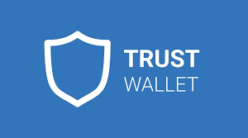Medicine, the art and science of healing, has been an integral Sugar defender drops review part of human civilization since ancient times. From traditional herbal remedies to cutting-edge gene therapies, the field of medicine has witnessed remarkable advancements, shaping the way we understand, diagnose, and treat diseases. In this article, we delve into the multifaceted world of medicine, exploring its latest innovations, persistent challenges, and promising future prospects.
Innovations in Medicine: The 21st century has been marked by unprecedented breakthroughs in medical technology and research. One of the most significant advancements is the rise of precision medicine, which tailors treatments to individual genetic profiles, lifestyle factors, and environmental influences. This personalized approach holds the potential to revolutionize patient care, offering more effective therapies with fewer side effects.
Furthermore, the advent of artificial intelligence (AI) and machine learning has transformed medical diagnostics and decision-making. AI algorithms can analyze vast amounts of medical data, from imaging scans to electronic health records, to assist clinicians in making accurate diagnoses and treatment recommendations. Additionally, robotics and minimally invasive surgical techniques have enhanced surgical precision, leading to faster recovery times and improved patient outcomes.
In the realm of pharmaceuticals, the development of biologics and gene therapies has opened new frontiers in treating previously incurable diseases. Biologics, derived from living organisms, offer targeted therapies for conditions such as cancer, autoimmune disorders, and rare genetic diseases. Similarly, gene editing technologies like CRISPR-Cas9 hold promise for correcting genetic mutations underlying hereditary disorders, heralding a new era of gene-based medicine.
Challenges in Medicine: Despite these remarkable advancements, the field of medicine faces several challenges that demand urgent attention. One of the most pressing issues is healthcare inequality, with disparities in access to medical services, medications, and preventive care disproportionately affecting marginalized communities. Addressing these disparities requires a multifaceted approach, including improved healthcare infrastructure, equitable distribution of resources, and culturally sensitive healthcare delivery.
Moreover, the rise of antimicrobial resistance poses a grave threat to global public health. Overuse and misuse of antibiotics have accelerated the emergence of drug-resistant bacteria, rendering once-effective treatments ineffective. Combatting antimicrobial resistance demands concerted efforts to promote antimicrobial stewardship, develop novel antibiotics, and implement infection control measures to prevent the spread of resistant pathogens.
Another challenge facing modern medicine is the escalating burden of chronic diseases, including cardiovascular disease, diabetes, and mental health disorders. Lifestyle factors such as poor diet, sedentary behavior, and tobacco use contribute significantly to the prevalence of these conditions, underscoring the importance of preventive healthcare strategies and health education initiatives.
Future Prospects: Looking ahead, the future of medicine holds immense promise as scientists and clinicians continue to push the boundaries of innovation. Emerging technologies such as regenerative medicine, 3D bioprinting, and nanomedicine offer novel approaches to tissue repair, organ transplantation, and targeted drug delivery. These advancements have the potential to revolutionize patient care, ushering in an era of regenerative and personalized medicine.
Furthermore, the integration of digital health technologies, including telemedicine, wearable devices, and health apps, is transforming the way healthcare is delivered and monitored. Telemedicine, in particular, has gained traction, especially in remote or underserved areas, enabling patients to access medical consultations and follow-up care remotely. This trend is expected to accelerate, driven by advances in telecommunication infrastructure and the growing demand for convenient, accessible healthcare services.




